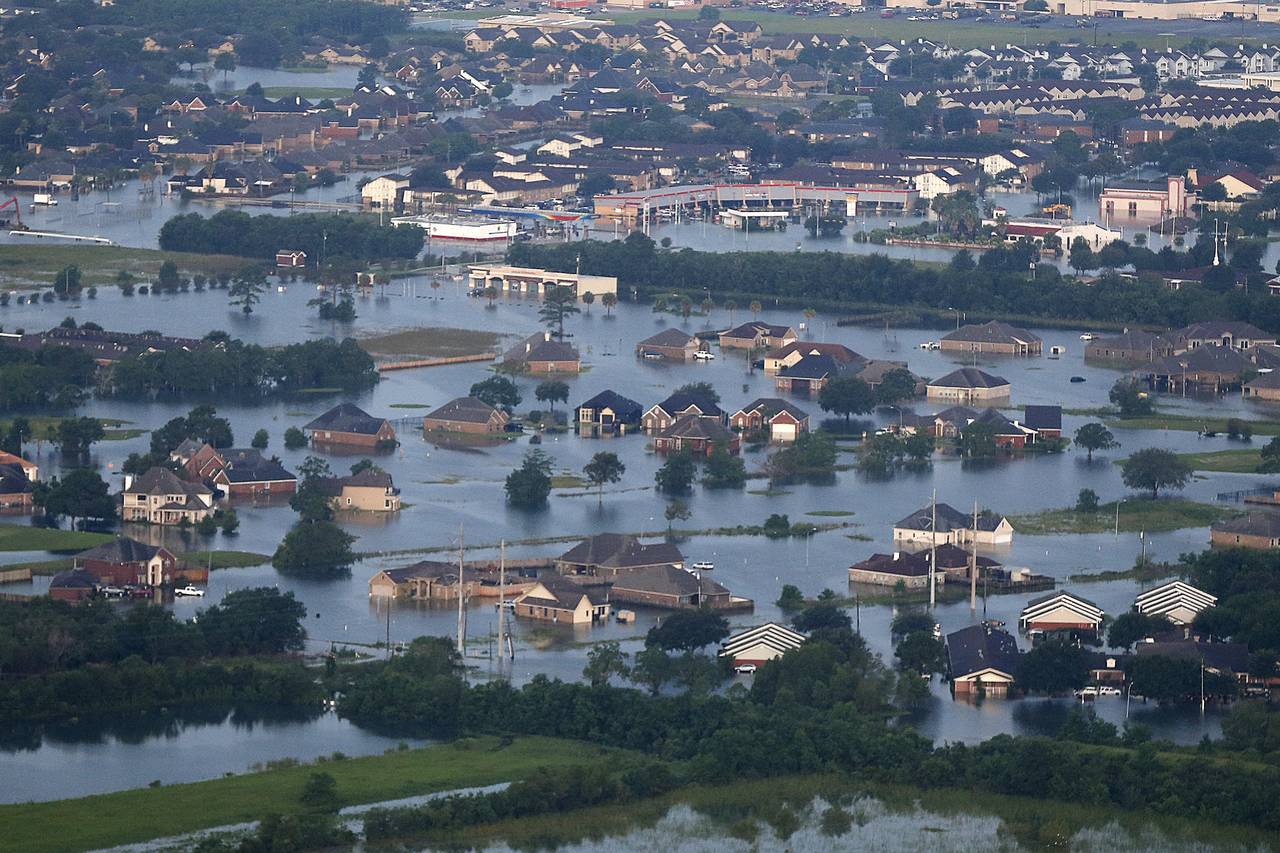
Tragedy in Texas: Foul weather, toxic politics
Hurricane Harvey came to Texas and then came again, bringing The Big Rain that drowned Houston, Beaumont, Port Arthur, and other towns and other states along its quirky path.
It will be weeks before we know the total death toll. The economic cost of replacing or fixing so many houses is enormous—well over $100 billion—but worse is the emotional pain for those who lost loved ones, homes, cars, pets, and memories.
All this has been well-reported but something key has been left out of the leading media narratives centered on loss, heroic rescues and unselfish courage. There is a big piece missing from the tale about Harvey told by the media, an important omission leading to a distorted picture.
That piece is the role of the Texas model of wild West capitalism—the model that for several decades Republicans have been pushing, too often for quite successfully, for the nation.
Houston, to cite one of hundreds of examples, grew to be the fourth largest city in the country without the bother or the benefit of zoning laws.
The results are now in. Build in an area that will inevitably be flooded at some point shortly down the road? Why not, there is no law regulation against it, a good profit to be made, and the homeowner and the insurance companies will be saddled with the losses.
Establish factories that manufacture hazardous, explosive, inflammable materials amid housing developments, schools, nursing homes, and hospitals? There is no law against it in Texas. The result is now evident as thousands of residents living near dangerous industrial facilities, now burning and exploding, had to be evacuated in the middle of a flood.
The lens through which the media views all this is natural disaster, but it didn’t take a hurricane for a fertilizer plant in the town of West Texas to explode suddenly a few years ago, killing many people who in the absence of zoning lived in adjacent areas. That forewarning fell on deaf ears among the predominantly conservative Republicans who rule the state in the interest of free-for-all capitalism.
The media, weary of being accused by Republicans from the president on down of fomenting division and distorting reality by merely covering it, jumped on a story that featured people coming together to help one another with high emotion and great visuals as a bonus.
Harvey was a force of nature, or for some an act of God, to be sure. But what followed was not merely the result of a natural disaster. It was made possible in part by human action founded on a certain ideology and politics. The sociologist Joe Fagin captured the spirit of that that ideology and that politics in the title of his book-length study of Houston, published more than twenty years ago: “Free Enterprise City.”
Texas is many things, some of them wonderful like the late Governor Ann Richards, who told George W. Bush in a debate he was born on third base and thought he hit a triple. Ditto the great, late Molly Ivins, a progressive populist columnist who trained her sharp wit on the bizarre antics and disdain for the public interest endemic to the state’s legislature. Today the state is rightly being celebrated for the courage of citizens who braved high waters to save the lives of total strangers.
Politically, however, Texas is significant because it is as close as it gets to the Republican Utopia of zero government, zero regulation. Utopia is always unrealizable, but it provides a horizon toward which to look and march.
The underwater world of large swaths of Texas today is the landscape that would result, at a national and global scale, if Republicans succeed in policy making on the kind of free enterprise fundamentalism and climate change denialism that is as Texan as the Alamo.
But Texas is also in the process of marching toward a far different scenario, one that parallels movement in the nation. Texas and the United States are moving to a minority-majority status, which should result in a Democratic majority and a more progressive nation.
Therefore, the question is whether the Republicans and other reactionaries will succeed first in remaking America in the image of the Free Enterprise City (built not on a hill but in a floodplain) or will the Democrats, the progressives, and the minorities beat them to the punch and move toward a post-racial, post-savage capitalism nation.


